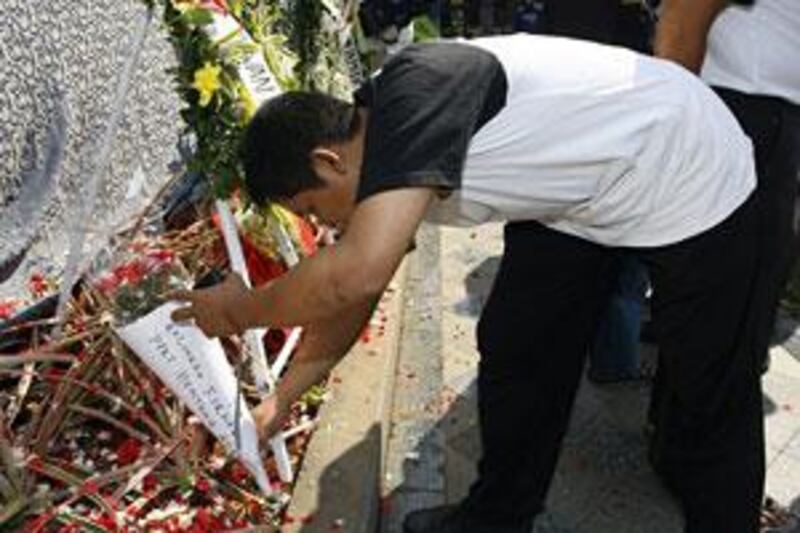Suicide bombers who struck at Jakarta hotels on Friday were members of the al Qa'eda-linked regional terror outfit Jemaah Islamiyah, Indonesian police have said. "We confirm that the attackers are from Jemaah Islamiyah because there are similarities in the bombs used (in the group's previous attacks)," national police spokesman Nanan Soekarna told a press conference. Also, Australia's prime minister Kevin Rudd confirmed the third Australian victim today, a mining executive Garth McEvoy. Two other Australians, a diplomat Craig Senger and a human resources manager Nathan Verity, were also killed in the attacks. Mr Rudd described the bombings, which claimed eight lives, as "appalling" and said Australia wanted those responsible brought to justice. "The Australian government will leave no stone unturned in bringing to justice the perpetrators of this violent, barbaric act of murder," he told reporters.
Meanwhile, scenes of blood-smeared businessmen being stretchered out of luxury Jakarta hotels have had a chilling effect on expatriates and investors lulled by years of relative peace in Indonesia. The bombs that tore through the JW Marriott and Ritz-Carlton hotels on Friday were apparently assembled in a guest room by Islamist radicals who then walked among businessmen and diplomats before detonating their devices.
Of the 16 men who sat at a Marriott breakfast table for a briefing organised by consulting firm Castle Asia, four were killed, including a New Zealander and three Australians, and the rest were wounded, a company source said.
"The method used in this attack was more sophisticated ... so that's a lot more sinister, and a new twist," said Martin Hughes, a director of Business Risk Indonesia. "But no, I don't think it will stop investment. There will be a temporary hiccup in some instances but the show will go on," he said.
The foreign business community, vital to Indonesia's ambitions to unlock its vast economic potential, is battle-hardened after a decade of terror attacks and most defied expectations that they would cut-and-run. "All the expats I know are fine, they're not worried, they're not thinking about getting out of the country. This sort of thing can happen anywhere so you just need to adjust," said Jessica Uekermann, a 32-year-old hotel manager.
"This has happened so many times already in this country," she said as she strolled with a friend through Jakarta's opulent new Grand Indonesia shopping mall. Friday's blasts are the first major attack in Indonesia since 2005 bombings in Bali. But since 2000 there have been numerous incidents including a 2003 car bomb at the Marriott and a 2004 attack on the Australian embassy. Indonesia's expatriate community is now much smaller than before 1998, when the regional economic crisis combined with the political chaos of the fall of long-time leader Suharto to trigger a mass exodus.
The foreigners who remain include many who speak the language, are pursuing long-term business plans, and have a vested interest in Indonesia's development. * AFP





